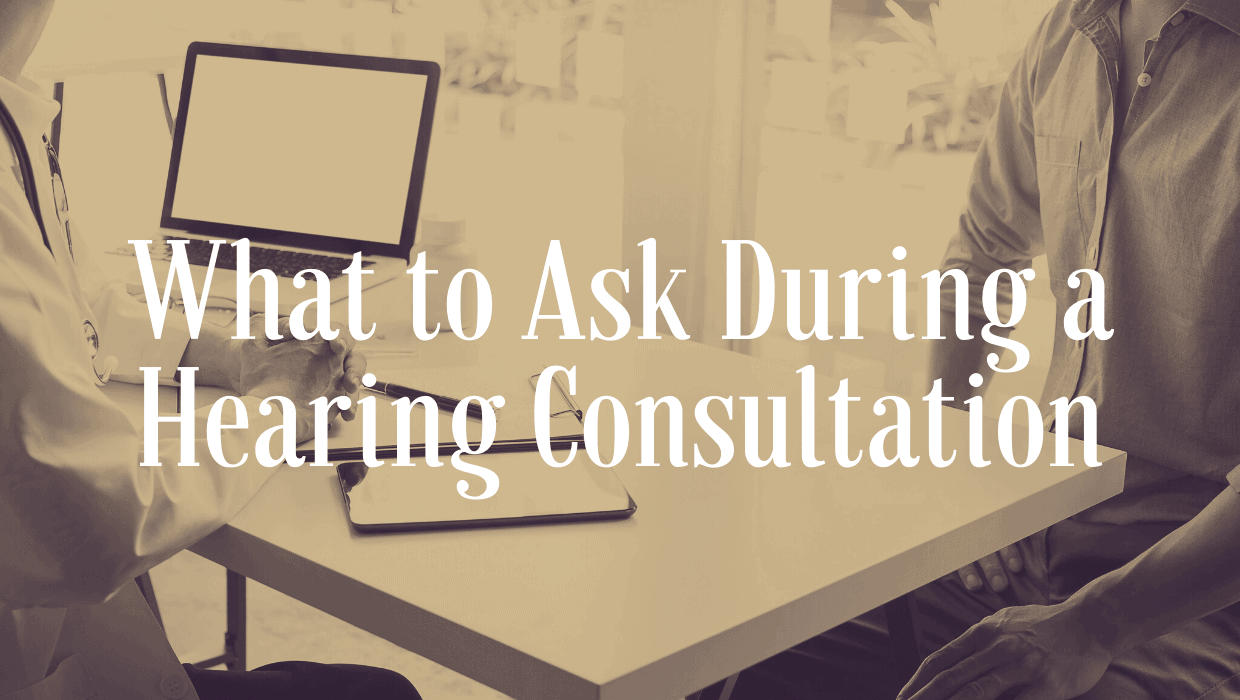
What to Ask During A Hearing Consultation
When you notice changes to the way you hear, it is important to schedule a hearing exam. While treatment exists for all levels of hearing loss, catching hearing issues early opens the door to treatment that is easier and more effective.
Getting ready for a hearing exam isn’t hard, but you should come prepared with questions to ask your hearing specialist. Asking questions can give you a deeper understanding of what is causing your hearing issues and the best course of action to treat them. If you are unclear about anything during your hearing exam, always feel empowered to ask for more information. Knowledge is power, and learning more about your specific hearing loss can help you find the treatment options that best suit your needs.
Question: How severe is my hearing loss?
Your hearing exam will include a listening test that is used to make a chart called an “audiogram”. Audiograms graph your hearing ability and can isolate frequency ranges that are specifically challenging to you. Your hearing specialist can use your audiogram to determine how severe your hearing loss is. Levels of hearing loss span from mild to profound and indicate the level of your hearing threshold (the quietest sound level you can hear). The degree of hearing loss you experience will guide the treatment options that will be most effective for you.
- Normal hearing indicates a hearing threshold between 0-25 dB
- Mild hearing loss indicates a hearing threshold between 25-40 dB
- Moderate hearing loss indicates a hearing threshold between 40-60 dB
- Severe hearing loss indicates a hearing threshold between 60-80 dB
- Severe-to-profound hearing loss indicates a hearing threshold between 80-90 dB
- Profound hearing loss occurs when the hearing threshold is above 90 dB
Question: What type of hearing loss do I have?
Your hearing test will also include several diagnostic tests to determine the cause and severity of hearing loss if it is present. There are two major types of hearing loss: conductive and sensorineural.
Conductive hearing loss occurs in the outer and middle ear. It can be caused by earwax or other blockages, infection or issues with the small bones of the middle ear. Conductive hearing loss can often be restored by resolving root issues.
Sensorineural hearing loss is based on damage to the inner ear. Delicate sensory cells in the inner ear cannot be repaired when they sustain damage causing permanent, irreversible hearing loss. While sensorineural hearing loss cannot be reversed, it can be effectively treated with hearing aids.
Question: Is my hearing loss symmetrical?
Hearing loss can be present in one or both ears. If it is present in both ears at relatively similar levels, the hearing loss is considered “symmetrical”. Hearing loss that is only in one ear, or exists at significantly different levels in each ear is called “asymmetrical”. With asymmetrical hearing loss it is sometimes possible to treat with a single hearing aid instead of a pair.
Question: Can my hearing loss worsen?
Depending on the type of hearing loss you experience, and lifestyle factors, your hearing may be vulnerable to further damage. People who already experience significant sensorineural hearing loss or are exposed to loud noises are especially at risk for further hearing loss.
Using hearing aids and hearing protection can help prevent a great degree of permanent hearing damage. Additionally, finding and treating hearing loss early can curb further damage from occurring, especially cognitive changes related to hearing loss. Check with your hearing specialist about whether your hearing may be at risk.
Question: What kinds of hearing aids are options for me?
Depending on the severity, type and configuration of your hearing loss your best options for treatment will vary. While mild hearing loss can be treated by a wide array of hearing aid configurations, severe and profound hearing impairment may require a specialized hearing aid to properly amplify sound. Your hearing specialist should be able to explain the types of hearing aids best suited to your hearing loss.
Question: Are there hearing aid features I should consider for my lifestyle?
Modern hearing aids now boast a wide variety of innovative features that can help integrate hearing assistance into your lifestyle. Features like rechargeable batteries, smartphone connectivity, tinnitus relief and telecoil access can all improve the way you navigate and enjoy the world. Work with your hearing specialist to determine the right features for your lifestyle.

